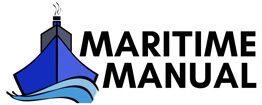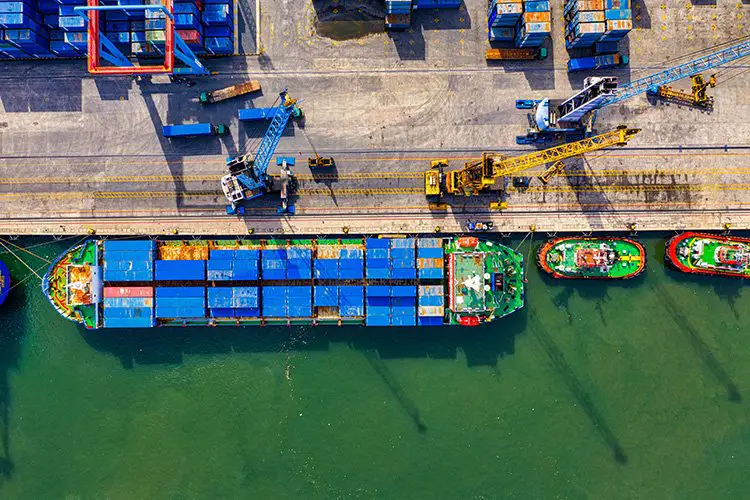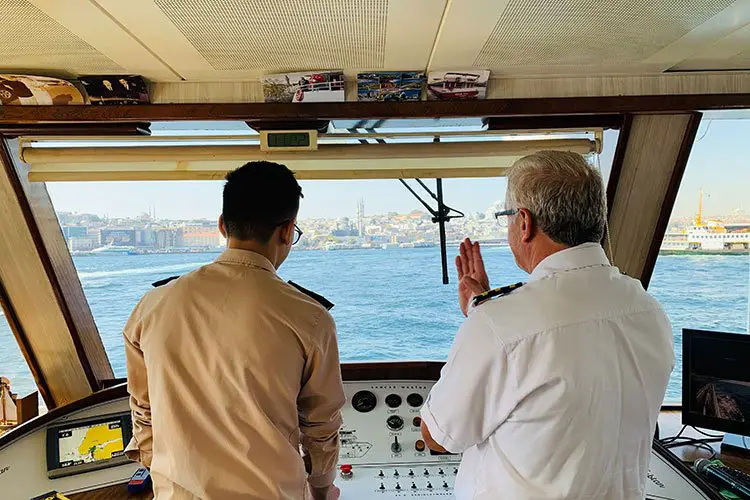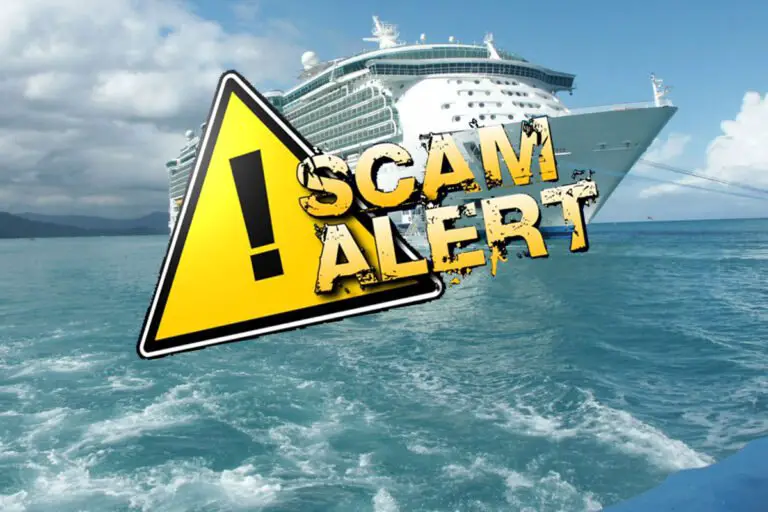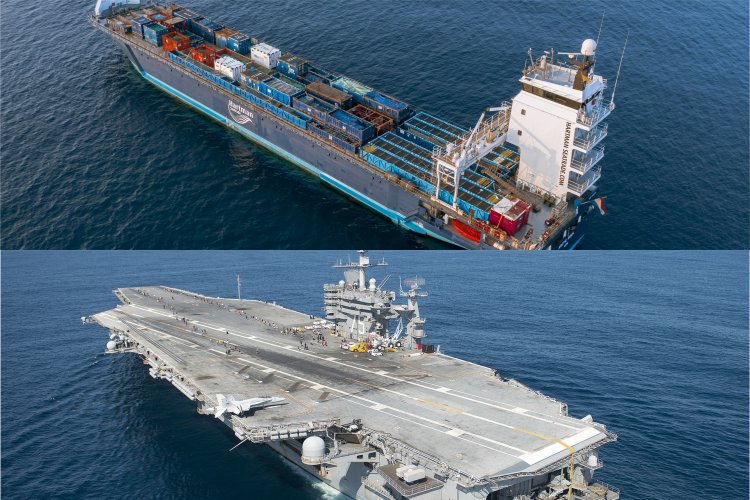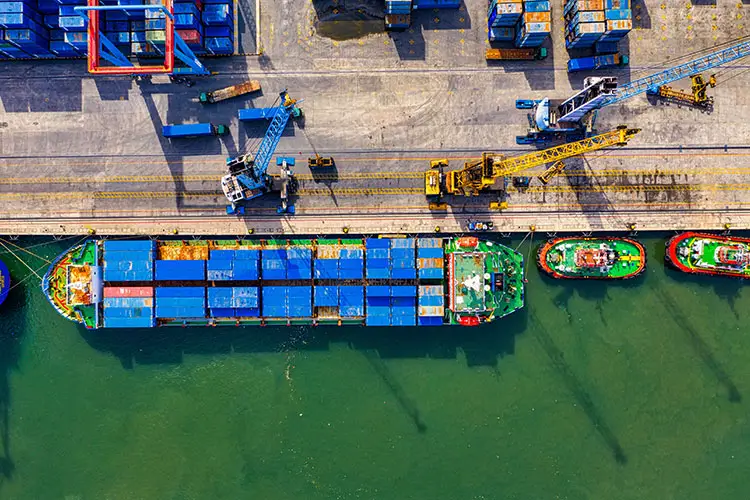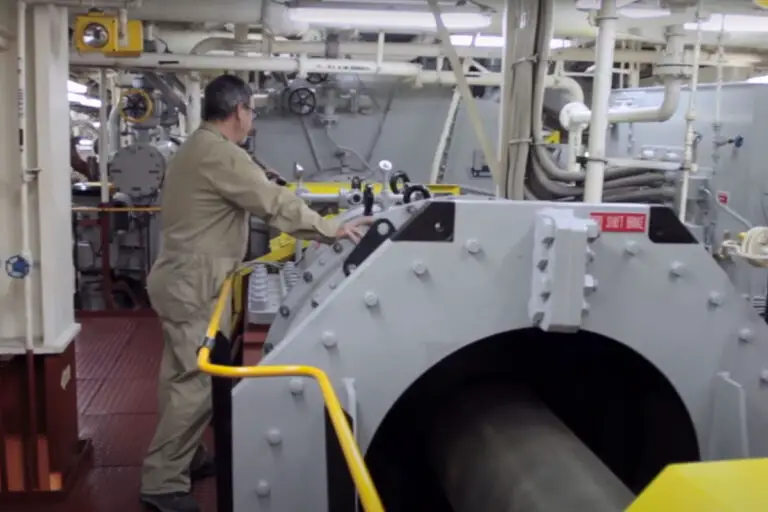A Comprehensive Guide To Merchant Navy Officer Ranks
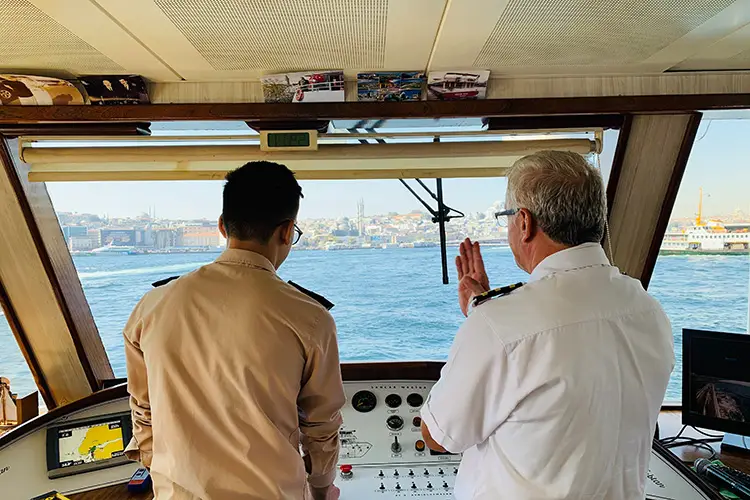
Merchant Navy is the backbone of international trade. The merchant ships employ a huge number of skilled workers to carry and deliver goods from one country to another. These workers work under various ranked officers.
In general, the Merchant Navy Officer Ranks are mainly divided into the following categories:
- Deck Department
- Engine Department
- Catering Department
Both the deck and engine departments ensure the smooth and efficient sailing of the ship. These departments have various officers ranked from high to low. Different duties are assigned to different officers so that there is no confusion about who carries out which job. This clear distinction ensures smooth operation in high-stress environments like a merchant vessel.
Deck Department
Merchant navy deck officers handle the navigation, communications, crew, cargo, and overall running of the ship. They also look after passengers on ships and take part in onboard social events.
OFFICERS:
- Master (Captain)
- Additional Master
- Chief Officer (Mate)
- Additional Chief Mate
- Second Officer (2nd Mate)
- Third Officer (3rd Mate)
- Additional Third Officer (Add. 3rd Mate)
- Cadet (Trainee Officer)
CREW:
- Pumpman (On tankers) / Deck fitter (on bulk carriers)
- Bosun
- AB (Able Seaman)
- OS (Ordinary Seaman)
- Trainee OS
Captain/Master
A sea captain is a high-grade licensed mariner who holds the ultimate command and responsibility of a merchant vessel. The captain is the topmost officers on the ship. He has immense responsibilities and presides over the activities occurring on board. He tackles serious issues and guides the crew to perform better.
The Captain stays in command of the vessel, all the time and he regulates the proper daily transaction and handles the legal affairs of the maritime issues.
He is responsible for the safe and efficient operation of the ship and its people and cargo, including its seaworthiness, safety and security, cargo operations, navigation, crew management, and legal compliance
If a situation arises wherein the Captain is not on board, then automatically the Chief Officer has to take over the Captain’s work and will act as the ship’s executive officer. You cannot become captain of the ship directly.
You have to join the merchant navy as Deck Cadet and then by promotion only you can become captain of the ship.
Chief Officer
Chief Officer is the head of the deck department and it is one of the most important ranks on the ship.
Chief Officer reports directly to the Captain of the ship. The chief officer is responsible for garbage management. He has to make sure that the crew should be familiar with SOLAS, MARPOL, and STCW. He is the Officer on Watch (OOW) for watch keeping and navigation between 0400-0800 hrs and 1600-2000 hrs.
Chief Officer or the first mate is also the Ship Security Officer (SSO) of the ship. He is entrusted with the safety of the crew and the passengers. He is responsible for ensuring that the ship’s hull is in perfect condition.
He is the in-charge of cargo and is responsible for LSA (lifesaving appliances) and FFA (firefighting appliances) maintenance on the ship.
Second Officer
The Second Officer is a licensed member of the deck department of a merchant ship holding a Second Mates Certificate of Competency, which is issued by the administration.
He is responsible for navigation, using radar, satellite, and computer systems. He would also monitor the vessel’s position, speed, direction, and weather reports, and carry out watch duties at sea (1200-1600 hrs and 0000-0400 hrs ) and in port (1200-1800 hrs and 0000-0600 hrs).
A Second Officer is also the medical officer on board entrusted with the maintenance and administration of all medically related services onboard.
Third Officer/Mate
The third officer is responsible for the upkeep and maintenance of all firefighting appliances (FFA) and life-saving appliances (LSA) on a ship. The third mate is a watchstander and customarily the ship’s safety officer and fourth-in-command. The third mate is also generally an active participant in fire and boat drills.
Deck Cadet
Deck Cadet is the entry point for the officer’s category in the Deck Department or Officers Department. To join as deck cadet you can choose out of two courses: B.Sc in Nautical science or D.N.S leading to B.Sc in Nautical Science. To take admission to these courses you have to clear the IMU CET entrance test.
After Deck Cadet to get promoted to Third Officers rank you have to clear the 2nd Mate Exam. From the Third officer to Second Officer’s rank, there is direct promotion. Then again for promotion to Chief Officer’s rank, you have to appear for the Chief Mate Exam conducted by the Government of India. To become captain of the ship, you have to clear Masters’s Exam conducted by GOI.
Duties of deck cadet include: cleaning and mopping, filling TRB but this is during off time, paperwork like copy-pasting and taking printouts, cargo watch and navigation, learning corrections and chart work, and learning deck work by bosun or senior cadet.
Read more: What Is The Difference Between Marine Engineering and Nautical Science?
Bosun
Bosun, also known as Petty Officer, works in the ship’s deck department as the foreman of the unlicensed deck crew. He is responsible for the ship’s hull and all its components, including its rigging, anchors, cables, sails, deck maintenance, and small boat operations.
The boatswain supervises the deck crew. His major duties include: Maintaining the deck of the ship (chipping, painting, buffing, etc.), informing the chief officer about the progress of the deck work being carried out, Mooring/Anchoring, Seeing that the work assigned to the crew, Planning the daily work schedule under the purview of the Chief Officer and assigning the required work to the appropriate members of the deck crew, etc.
Also read: What is MNTB?
Able-Bodied Seaman
Able Seaman is a naval rating of the deck department of a merchant ship with more than two years experience at sea and considered “well acquainted with his duty”. The duties of Able Seaman include:
- Measures depth of water in shallow or unfamiliar waters, using leadline, and telephones or shouts information to bridge.
- Breaks out, rigs, overhauls, and stow cargo-handling gear, stationary rigging, and running gear.
- Stands watch from bow of ship or wing of bridge to look for an obstruction in the path of the ship.
- Steers ship and maintains visual communication with other ships.
- Steers ship under direction of ship’s commander or navigating officer, or directs helmsman to steer, following the designated course.
- Overhauls lifeboats and lifeboat gear, and lowers or raises lifeboats with winch or falls.
- Paints and chips rust on the deck or superstructure of the ship.
- Stands by the wheel when the ship is on automatic pilot and verifies the accuracy of course by comparing it with the magnetic compass. Gives directions to crew engaged in cleaning wheelhouse and quarter deck. Stows or removes cargo from the ship’s hold.
- Maintains a ship’s log while in port, and stands gangway watches to prevent unauthorized persons from boarding the ship.
Ordinary Seaman
An ordinary seaman (OS) is a naval rating of the deck department of a ship. An OS is usually busy with tasks such as buffing, scaling, cleaning the deck, and occasionally painting the superstructure, above the main deck. An ordinary seaman can undertake activities like overhauling, splicing ropes, wiring, rigging, etc, and conducting repair work on the deck. It is the Ordinary seaman’s job to ensure the secure handling of cargo gears and loading or dismantling cargo. He is directly associated with the proper launching and recovering of the ship’s lifeboats.
Also read: Merchant Navy Recruitment Process Guide
Engine Department
Merchant Navy engineering officers maintain the mechanical and electrical machinery and instruments onboard a ship.
ENGINE OFFICERS (ENGINEERS)
- Chief Engineer (Bada Saab)
- Second Engineer
- Third Engineer
- Fourth Engineer
- Fifth Engineer( Trainee engineer)
- Electrical Officer
CREW:
- Motorman
- Fitter
- Wiper
- Trainee wiper
Chief Engineer
The Chief Engineer is the head of the engineering department on a vessel. He holds the overall leadership and responsibility of that department. The duties of a chief engineer include:
- Chief Engineer plans, directs, and performs as necessary the activities of the Engineering Department in carrying out its assigned functions and responsibilities
- To supervise his or her fellow department personnel while providing job training and guidance to his or her fellow assistant engineers.
- A Chief Engineer must ensure the mission of the ship can be successfully completed by supervising or personally performing particularly complex or difficult technical work and activities
Second Engineer/First Assistant Engineer
The second engineer is responsible for supervising the daily maintenance and operation of the engine department. He is the head of the engine department of the ship after the chief engineer.
They also assign duties to unlicensed personnel and monitor and record over time. They are responsible for the proper operation, maintenance, and safety of all engine department machinery, equipment, and spaces for the conduct and performance of engine personnel and for the economical use of consumable supplies and stores.
A first assistant has to be familiar with their ship’s systems, repair schedules, and test results obtained from oil or water samples.
The first assistant engineer reports directly to the chief engineer daily and assists with paperwork and administrative duties as needed. This includes safety checks and duties that the chief may not have time to accomplish.
Also read: Top Websites For Merchant Navy Jobs
Third Engineer/ Second Assistant Engineer
The Second Assistant Engineer is responsible for the proper operation, maintenance, upkeep, and conditions of the fire room, boilers, and auxiliary equipment and machinery, which may include UNREP cargo systems. He reports to the second engineer. He monitors all pump lines, provision reefer, emergency pump lines, and ship’s spare and stores. Also, he manages fuel consumption.
Fourth Engineer/Third Assistant Engineer
A Fourth Engineer or Third Assistant Engineer is a rank of engine officer who is part of the engine department on a merchant’s vessel. The general duties for a third assistant engineer differ from ship to ship. He is tasked with controlling the main propulsion systems, water systems, and anything else tasked to them from up in the chain of command.
He is in charge of keeping the plant in operation, with the command being passed down and being delegated by who is on the watch. They are trained to be competent in a wide variety of fields such as HVAC (heating, ventilation, and air conditioning), electronics, Shipboard medical, and the operation of both steam and diesel-driven plants. The fourth Engineer is expected to handle jobs in all areas of the ship, as they are needed.
Fifth Engineer/Engineering Cadet
The fifth engineer is under the direct supervision of the Second engineer on board and is usually assigned various tasks as per the planned job schedule. He is a trainee whose duties r mainly to learn things.
These are the following duties the fifth engineer has to perform:
- To check soundings (levels) of IOPP tanks and report the same to a senior engineer
- Learning the working principles, starting-stopping procedures, assembling, dismantling, and troubleshooting for Main Air Compressor, Purifiers, and Sewage Treatment Plant.
- Maintaining workshops and various tools.
- Learn Watchkeeping procedures.
- changing oil filters.
Catering Department (Under Master)
- Chief cook
- General steward
Chief Cook
A chief cook is a senior most unlicensed crewmember working in the steward’s department of a merchant ship. His duty is to prepare meals for the crew and passengers.
Depending on the size of the ship and the number of crew members, the chief cook will have an assistant cook to help in duties.
The Chief Cook shall ensure that the approved menu is strictly adhered to and prepared IAW the approved recipes unless the Chief Steward authorizes specific changes or substitutions. He inspects the equipment needed to keep the ship clean and uncontaminated in the galley area.
Trainee Cook
As the name suggests the trainee cook assists the chief cook in the preparation of meals and managing provision.
Steward
Steward mainly helps the chief cook for preparing and serving food to the people on board. He is also responsible for sweeping and maintaining the living quarters of the officers.
A steward also has the job of stocktaking the stores. A steward manages the grocery accounts, planning meal menus, and cost control issues documentation.
So these were the officer rank jobs in Merchant Navy. Their salary is also very high. They live a life of luxury. All crew members and officers are given free meals on board and senior officers can take along their wives for the voyage.
A Junior Engineer on a ship can earn around Rs. 30,000 per month with free boarding and lodging while signed on board the vessel. The chief engineer earns about Rs. 1.5 lakhs per month.
A Captain’s pay package is about Rs. 2 lakhs per month. Besides this, imported liquor, cigarettes, canned foods, cosmetics are available onboard duty-free. Who doesn’t want to live an awesome life like this?
